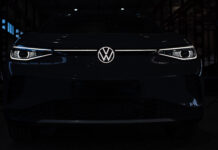
All CO2 emissions from internal combustion engines in new vehicles will be charged in the European Union from 2035. EU member states today gave final approval to a standard that will make the sale of new petrol and diesel cars virtually impossible from that date. EU ministers’ approval of the long-discussed rules was preceded by an agreement between Germany and the European Commission that ensures the continued use of internal combustion engines powered exclusively by synthetic fuels.
Only Italy and Poland opposed the rules today, but their opposition was not enough to block them. As MEPs had already agreed to the standard, it can now enter into force.
The standard, agreed by the Czech Presidency at the end of October, is part of a package of proposals to significantly reduce greenhouse gas emissions. In addition to zero carbon dioxide emissions from 2035, it also introduces a gradual target to reduce carbon dioxide emissions by 55 percent by the end of this decade compared to 2021 levels.
But Berlin had problems with its wording, saying it did not sufficiently guarantee exemptions for the use of synthetic fuel engines, also known as e-fuels. Other countries, including the Czech Republic, joined its demands, gaining enough votes to block the proposal.
The Commission and the German government announced on Saturday that a compromise had been found. While Berlin and Prague agreed to the standard today, Rome and Warsaw opposed it. Italy tried unsuccessfully to push support for biofuels into the text.
source: ČTK













